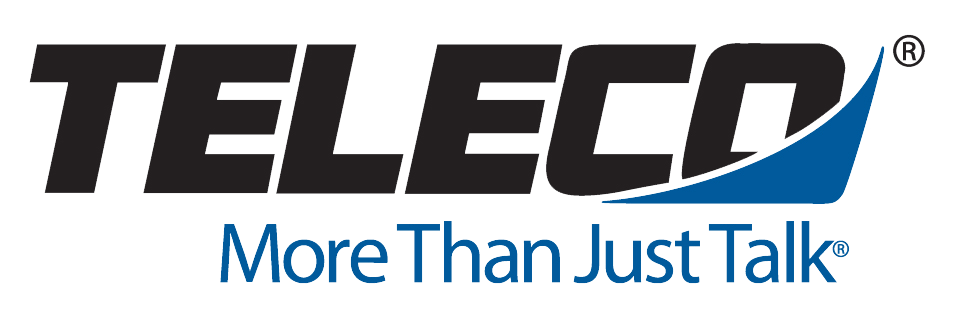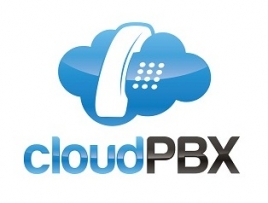No matter what kind of telephone system you have, you need to get dial tones and phone numbers and Internet access. There are a variety of options each with their own pros and cons. At Teleco, we have over 35 years of experience dealing with the “phone company” and can help you decide what’s right for you. We are agents for dozens of different carriers, so we can process your orders, make sure you get the best pricing, and act as your representatives so you don’t have to call the “phone company” yourself. Teleco can also offer you a free bill analysis to make sure you aren’t paying too much for phone lines or internet service and are getting the best services available to you.
Here are just a some of the carriers we represent:
 |
 |
 |
 |
 |
 |
 |
|
Here are some of the options for phone and internet services available today:
Analog
This is the most basic type of phone service. Often called POTS or Plain Old Telephone Service, analog lines are what we all grew up with. Single phone lines that run over traditional copper wires with roll over or hunting service so you can get more than one call to the same main phone number.
Today, analog service can be provided by Verizon, either via FiOS or traditional copper, a Verizon reseller or rebiller, your local cable company such as Cablevision, Comcast, or Time Warner, or even over the Internet using special adapters that convert the VoIP signal to analog from companies like Vonage, Accessline and many others.
Most phone systems use analog lines because of their ease of use and traditional set up. You can see line 1 or line 4 on individual buttons on your phone. There is no transferring or parking needed to use analog phone lines. Analog phone lines are also required for fax machines, most credit card machines, most alarm systems, and some conference room phones.
The biggest PRO of analog is its ease of use and low cost, especially when provided by your local cable company. Teleco is an agent for Cablevision, Comcast, and Time Warner and can provide you with the identical service and pricing as buying direct, but we give you extras like free installation on your phone system, rebates of the cable company’s installation charges, and we coordinate all the order and installation details. We also can help you manage the service on an ongoing basis.
The biggest CON with analog is a lack of some of today’s more advanced features like private phone numbers or advanced caller ID control.
Analog phone lines can be combined with Internet service from your cable company, DSL service from Verizon, or even T1 Internet service depending on your needs. Most often, you get Internet from the same company that provides your analog phone service.
Teleco offers analog service from a variety of carriers including Cablevision, Time Warner, Comcast, Verizon, Vonage, Spectrotel, and many more.
Call for a free quote today!
VoIP Phone Installation
VoIP is the latest and most complex type of phone service. VoIP is a technology and not a specific product. There are many VoIP products. The most common one today is getting dial tones over the Internet. This can be done in several ways and each way has PROs and CONs.
The most common way is via your local cable company. Just like they can provide you with analog lines, they can also provide you with VoIP lines, often caller SIP lines or SIP Trunks, and the price is the same as analog. This is called 1st party VoIP. It’s called 1st party because the phone line provider and the Internet provider are the same.
The big PRO with using SIP lines instead of analog provides advanced features such private phone lines, often called DID or direct inward dial, and enhanced caller ID functionality, such as showing the main phone number on all outgoing calls, as opposed to analog where if you call out on line 4, line 4’s phone number shows up on the caller ID.
SIP lines can also be ordered just like analog lines, so if you need 4 phone lines, you can get 4 SIP lines and if you need 6 you can get 6.
You need a SIP compatible telephone system, but all the systems Teleco carries are SIP compatible.
The biggest CON with 1st party SIP is that it’s not quite as easy to use as analog. You don’t get to see each line on a button like you do with analog lines. You have to transfer or park calls needed to use analog phone lines.
Another CON is that SIP is not a fully standard protocol. Your phone system needs to be certified with your phone system and that limits your choice of carrier and that can offset SIP lines pricing advantage.
Now, there’s a similar SIP technology called 3rd party SIP or BYOB, bring your own bandwidth. The difference here is that the SIP line provider and your Internet provider are different. 3rd party SIP has all the same PROs and CONs as 1st party SIP lines, plus there is an additional big PRO and an additional big CON with 3rd party SIP
The big PRO is price. 3rd Party SIP can be much less expensive than 1st party SIP. 3rd party SIP lines can be as low as $10 per month for a metered SIP line and as low as $20 or $25 per month for an unlimited line. You can also mix and match unlimited SIP lines and metered SIP lines.
The biggest CON is quality. 3rd party SIP lines go over the wild world of the open Internet. If your Internet access is slow, 3rd party SIP lines will have very poor sound quality. If the Internet in general is slow that day because of a big news story or just a lot of people looking at a youtube video of dancing cats, your 3rd party SIP lines will suffer call quality. Generally, 1st party SIP is always preferable to 3rd party, especially if you can get Internet access from your local cable company.
Teleco is an agent for Cablevision, Time Warner, and Comcast, so call today to see if cable is available for your office and for a free quote right over the phone for VoIP Phone Installation.
Hosted PBX or Cloud Based Telephone Systems
Hosted PBX or Cloud Based Telephone Systems combine the phone system equipment with the dial tones. You do not need to get phone lines from a separate company. There are many PROs and CONs with cloud based systems and this is the latest, most complicated, and most controversial type of service offered today. Many of the PROs and CONs are the same as with SIP trunks, both 1st and 3rd party, as Hosted PBX systems come in both 1st and 3rd party flavors.
PROs:
Cloud based systems offer some great features with a generally low entry price point. Many of the most advanced features including Automatic Call Distribution, Call Recording, Find Me / Follow Me, Simultaneous Ringing, Smart Phone Extensions, and more come at a very low cost compared with other types of systems. Depending on your Cloud Based Carrier, you can either use low cost generic SIP phones made by brands like Cisco, Polycom, Zyltus, Aastra, and more while some Cloud Based carriers like Toshiba VIPEdge and IPitomy also offer propriety phones with more features.
Hosted Systems are location independent. You can take your phone home and plug it into the interest and use it just like you were at your desk. In fact, Cloud Based solutions essentially have complete disaster recovery plans built right in because with just some handsets you can be back up and running in a new location virtually instantly.
If you ever move, even across the country, taking your existing phone numbers with you is a snap
CONs:
The biggest CON is call quality isn’t always acceptable. Running voice over the Internet, regardless of how much bandwidth you have, sometimes results in poor sound quality, echoes, cut offs, and delays.
Cloud based systems can be hard to use. You don’t have the normal line 1, line 2, line 3 button appearance that most people are used to. You have to transfer and park calls. You can’t just put calls on hold and pick them up at another desk.
Long term cost of ownership can be much higher with Hosted telephone systems, but that depends on your specific set up. If you have lots of telephones, but not as many phone lines, you are generally not a good candidate for a Hosted system. If you have about the same number of telephones and telephone lines, then you are a good candidate.
Just about all of the features of a cloud based system are available on traditional premise based systems and usually cost less in the long run.
Cloud Based Systems require Cat5 cable for each phone, which may mean you have to do some wiring work in your office. Ideally, each phone would have it’s own Cat5 cable, but you can share a Cat5 cable with your computer, but that creates some network issues that can cause quality problems.
Hosted PBX phones require power to the phones themselves. So you either need a power adapter for each phone, adding to desk clutter, or you need expensive Power Over Ethernet Switches.
Cloud Based systems run over your computer network, so advanced network gear and knowledge is needed to keep these system running smoothly. Any failure in your network would also bring down your entire telephone system.
Hosted Systems are not for the technically challenged. The phones are harder to use, the features are harder to use, and your network requires advanced management that usually requires an outside IT vendor to support, which can be very expensive.
Digital
Digital phone service has been around for over 25 years. It used to be restricted to big companies with big budgets, but that’s no longer the case. Digital phone service is also sometimes known as T1 or PRI. Both terms are generally interchangeable these days.
Digital phone service provides a bundle of “dial tones” into a package. Normally, you’d need 12 or more phone lines before digital would be economical. Digital provides several PROs and a few CONs.
The biggest PROs are lower costs compared with some analog phone lines when you need at least 12, enhanced features such as private phone lines, often called DID or direct inward dial, and enhanced caller ID functionality, such as showing the main phone number on all outgoing calls, as opposed to analog where if you call out on line 4, line 4’s phone number shows up on the caller ID.
Digital is also highly reliable, industry standard and available just about anywhere. You don’t need super fast internet access and digital service doesn’t depend on the Internet for its call quality. Call quality is always perfect.
You can also incorporate fax machine, credit card machines, and conference room phones with digital service. You can also get a type of digital service called Integrated Access, which combines phone lines with Internet service.
Digital service is also highly expandable. There is no real limit to how large you can grow with digital service.
The biggest CONs for digital is that it’s not right for small businesses. There are minimums required for digital service that don’t make it a good fit for people with fewer than 12 phone lines. Digital can also be more expensive that some VoIP options, though it’s normally very competitive.
Teleco offers digital service from a variety of carriers including Cablevision, Lightpath, Earthlink, Level 3, Paetec, Megapath, Verizon, and many more.
Call for a free quote today!


